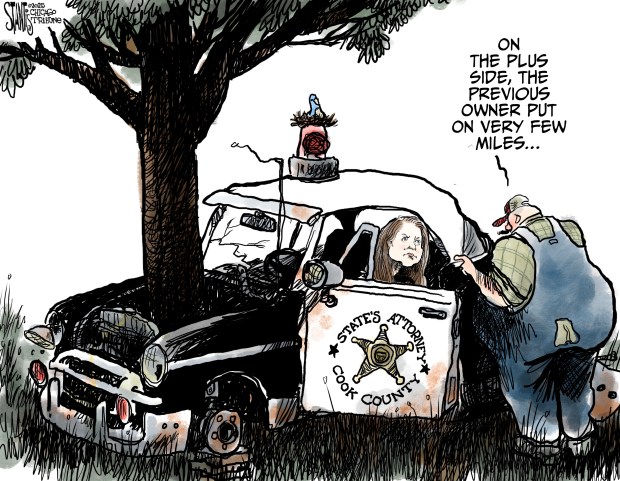Our senior citizens are our communities’ greatest treasure. They represent wisdom and the ability to bridge generations. Many have sacrificed and blazed trails to make America a more perfect union. At churches throughout the country, I have encountered senior citizens who are struggling to make ends meet. Older Americans are skipping meals or lack the ability to pay for groceries, and so they eat junk food. I hear stories of senior citizens running out of money before the end of the month.
A 2023 New York Times article, “Close to the Line: Why More Seniors Are Living in Poverty,” noted a huge jump in the number of people older than 65 living in poverty: “14.1%, representing more than eight million older Americans,” dealt with poverty in 2022, the article reported, citing census data. The article chronicles the struggles of 69-year-old Mary Cole of Bristol, Virginia, who is supporting herself and her 19-year-old grandson. Cole receives $914 in monthly Supplemental Security Income. She faces health issues, along with paying for rent and utilities. She says by the end of the month, she is tempted to go to a food pantry for assistance.
Cole’s situation is similar to that of older Americans across the country. The Elder Index, developed by the Gerontology Institute at the University of Massachusetts, measures the amount of income that older Americans need to cover their expenses and grow in age with dignity. In the Chicago metropolitan area, an older American in reasonably good health who is renting an apartment would need $2,564 a month. The average Social Security benefit pays only about $1,900 a month. Also, “about 50% of women ages 55 to 66 have no personal retirement savings, compared to 47% of men,” the U.S. Census Bureau has noted.
The State of Senior Hunger in America 2021 report issued by Feeding America, a nationwide network of food banks, found that “5.5 million seniors (60 and up) and 3.8 million older adults (50-59) experienced food insecurity in 2021.” Lack of access to healthy food isn’t the only issue older Americans deal with. About 20% of adults 65 and older in 2022 “either skipped, delayed, took less medication than was prescribed, or took someone else’s medication … because of concerns about cost,” NBC News reported in 2023, citing a study published by the American Medical Association’s open access medical journal. Older Americans should never have to choose between taking their medication, paying a bill or buying groceries.
In Chicago’s ZIP codes, poverty rates for seniors 75 and older are unacceptably high. For example, seniors living in 60612 on the Near West Side have a poverty rate of 38.7%; in 60640, which includes the Uptown neighborhood, the poverty rate is 32.8%; and in 60616 on the South Side, the senior poverty rate is 31.6%. The poverty rate for seniors in Illinois is around 10%.
Because older Americans live on fixed incomes, have chronic health issues, and often lack mobility and a support system, they are the most vulnerable in an economy with high inflation.
According to The Wall Street Journal, it’s been 30 years since food ate up so much of Americans’ income. It notes that Americans spent 11.3% of their income on food in 2022. According to the Bureau of Labor Statistics’ consumer price index data, restaurant prices were up 5.1% over the last year in January, while grocery costs increased 1.2%. Senior citizens in Illinois feel the pain at the pump and the grocery store.
Our elected leaders must do more to help our senior citizens. Why should senior citizens have to suffer in their twilight years because they lack resources? Why should seniors worry about health care costs and housing?
Gov. J.B. Pritzker has spent $638 million in tax dollars to address the migrant crisis, and he has requested an additional $160 million in his budget. Chicago Mayor Brandon Johnson has spent more than $250 million to house and feed migrants. Cook County Board President Toni Preckwinkle has spent $100 million and pledged another $70 million for migrant care. That adds up to more than $1 billion in taxpayer money being used to take care of people from other countries. Illinoisans are struggling, many living paycheck to paycheck, and our leaders take more than $1 billion to help migrants. It defies common sense.
The following are suggestions to help our senior citizens:
• Johnson should establish health care facilities with a pharmaceutical dispensary in larger senior homes.
• Johnson should establish mini-grocery stores or fresh food trucks for senior buildings to help those with transportation and mobility issues.
• President Joe Biden should work with Congress to shore up Social Security, which is scheduled to run out of money by 2034.
• Pritzker, Johnson and Preckwinkle must coordinate services, including public safety, nutrition and meal support, health care, housing, employment and rent subsidies to assist senior citizens.
• Pritzker should do more to close down poor-performing senior and nursing homes.
As our population grows older, we must honor and cherish them. According to the Illinois Department of Public Health, the “highest rate of suicide in the nation is among persons 65 years of age and older.” Often, senior citizens suffer from depression and isolation.
I urge readers to check on senior citizens they know — it just might improve the quality of their life.
I write this commentary to make those comfortable with forgetting our senior citizens uncomfortable.
Willie Wilson is a business owner, philanthropist and former mayoral candidate.



